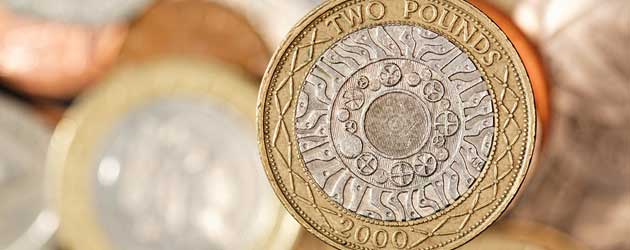
The Pound to Euro exchange rate (GBP/EUR) struck a daily high of 1.2028 yesterday as investors reacted to a surprise decision from the Bank of England to revise its Funding for Lending Scheme (FLS).
Amid fears that cheap credit could inflate another property bubble, and optimism that the British housing market has improved markedly since the scheme’s inception last year, the BoE announced that the FLS programme would only be used to help fund small businesses, and not house purchases, as of next year.
Governor Mark Carney said that the move was designed to help keep monetary policy loose for longer, suggesting that he could keep the benchmark interest rate at lower levels if rapid rises in the housing market were to cool down.
Investors interpreted the decision to mean the opposite; they took it as a piece of monetary tightening and subsequently sent Sterling higher across the board.
In response to the FLS announcement the Pound hit a fresh 11-month high against the US Dollar, a near-4-year high against the Canadian Dollar, a fresh 3-year high against the Australian Dollar, a fresh 5-year high against the Japanese Yen and a fresh 17-month high against the New Zealand Dollar.
In terms of European data, sentiment remained neutral as German Unemployment jumped unexpectedly by 10,000 to a 2.5-year high, and German CPI inflation rose faster-than-anticipated to 1.3%.
Later this morning Eurozone CPI inflation is predicted to inch higher from 0.7% to 0.8%. Low inflation/the prospect of deflation is the European Central Bank’s primary concern at the moment and the reason that it cut interest rates by 25 basis points to a fresh record low 0.25% earlier this month. This decision, coupled with fears that further rate cuts, negative deposit rates and a quantitative easing-style bond-buying scheme could be initiated, had a strong depreciatory impact on the single currency.
However, with German CPI growing by more-than-anticipated in November, it is possible that inflation throughout the currency bloc also outperformed analysts’ expectations. If this is the case then investors may deem it appropriate to scale back their forecasts for further ECB easing and this could bolster demand for the Euro and push GBP/EUR back below 1.2000.
On the other hand traders may, barring a substantially strong CPI reading, ignore the result in light of the recent fall in crude oil prices, which could drive global inflation lower over the next few months.
Having said that, the ECB is keen to avoid stimulus as much as possible – through fear of running out of policy instruments – and for this reason any kind of positive CPI reading has a fairly good chance of boosting the single currency.

Comments are closed.